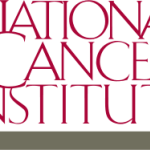- 업종: Government; Health care
- Number of terms: 6957
- Number of blossaries: 0
- Company Profile:
The National Cancer Institute (NCI) is part of the National Institutes of Health (NIH), which is one of 11 agencies that compose the Department of Health and Human Services (HHS). The NCI, established under the National Cancer Institute Act of 1937, is the Federal Government's principal agency for ...
A recombinant therapeutic agent which is chemically identical to or similar to CD40-ligand. CD40-ligand, also known as CD40L/TRAP and CD154, is a type II membrane protein which binds to CD40, a cell surface receptor that belongs to the tumor necrosis factor receptor family; CD40 is expressed on B lymphocytes, monocytes, dendritic cells (DC), hematopoietic progenitors, endothelial cells and epithelial cells. Recombinant CD40-ligand may be used to activate DC ex vivo via CD40 binding; CD40-ligand-activated DC may provide or augment a protective antitumor immunity when administered in dendritic cell cancer vaccines.
Industry:Pharmaceutical
A recombinant therapeutic agent which is chemically identical to or similar to one of a number of endogenous tumor necrosis factor (TNF) proteins. TNF family cytokines bind to and activate specific cell-surface receptors, thereby mediating inflammatory processes, cell proliferation, immunity, angiogenesis, and tumor cell cytotoxicity. One primary antitumor effect of TNFs involves stimulation of T cell-mediated antitumor cytotoxicity.
Industry:Pharmaceutical
A recombinant therapeutic agent which is chemically identical to or similar to the endogenous cytokine granulocyte colony-stimulating factor (G-CSF). Secreted by monocytes, macrophages and neutrophils and other cells after activation, G-CSF stimulates the proliferation and differentiation of hematopoietic progenitor cells committed to the neutrophil/ granulocyte lineage.
Industry:Pharmaceutical
A recombinant therapeutic agent which is chemically identical to or similar to the endogenous cytokine interleukin-18 (IL-18). Produced primarily by macrophages, IL-18 induces the production of interferon-gamma (IFN-gamma), and enhances the activity of natural killer (NK) and cytotoxic T lymphocytes (CTL). As a potential immunotherapeutic agent, IL-18 displays antitumor effects in vitro and in animal models.
Industry:Pharmaceutical
A recombinant therapeutic agent which is chemically identical to or similar to the endogenous cytokine interleukin-4 (IL-4). Produced primarily by activated T-cells, IL-4 binds to and activates its cell-surface receptor, stimulating the proliferation and differentiation of activated B-cells and enhancing their ability to present antigens to T-cells. As a potential immunotherapeutic agent, recombinant IL-4 also augments the effects of other cytokines on dendritic cells (DC), cytotoxic T lymphocytes (CTL), and tumor-infiltrating lymphocytes (TIL).
Industry:Pharmaceutical
A recombinant therapeutic agent which is chemically identical to or similar to the endogenous protein cytokine interleukin 1 (IL-1)-beta. Produced by monocytes and activated macrophages, endogenous mature IL-1 is generated through proteolytic cleavage by proteases such as IL-1-beta converting enzyme (ICE). This agent promotes angiogenesis, fibroblast proliferation, and neutrophil chemotaxis; it also regulates the functions of lymphocytes and epithelial cells and is involved in the 'acute phase response' to infection.
Industry:Pharmaceutical
A recombinant therapeutic agent which is chemically identical to or similar to the endogenous protein cytokine macrophage colony-stimulating factor (M-CSF). Synthesized endogenously by mesenchymal cells, M-CSF stimulates the survival, proliferation, and differentiation of hematopoietic cells of the monocyte-macrophage series and can reverse treatment-related neutropenias. Recombinant M-CSF may also enhance antigen presentation and activate antitumoral cytotoxic T-cells.
Industry:Pharmaceutical
A recombinant tumor-specific melanoma antigen. Vaccination with recombinant MAGE-3. 1 antigen may induce a host immune response against MAGE-expressing cells, resulting in antitumoral T cell-mediated cytotoxicity. MAGE-expressing cells are found in melanoma, non-small-cell lung carcinoma (NSCLC), head and neck squamous cell carcinoma, transitional cell carcinoma of the bladder, and esophageal carcinoma.
Industry:Pharmaceutical
A recombinant type 5 adenovirus (Ad5), encoding the gene for the human sodium-iodide symporter (NIS) linked to the cytomegalovirus (CMV) promoter, with potential gene transfection activity. Upon intratumoral injection, Ad5-CMV-NIS is taken up by tumor cells, resulting in the cellular expression of NIS. Subsequently, orally administered iodine 131 is taken up by NIS-expressing tumor cells, which may result in the selective accumulation of a cytotoxic dose of beta and gamma radiation in non-thyroidal tumor cells, sparing adjacent normal tissue. NIS, an intrinsic membrane glycoprotein, is an ion pump that actively transports iodide into cells which concentrate iodine; in addition to thyroid epithelial cells, it is found in non-thyroidal tissues including the salivary glands, the gastric mucosa, and lactating mammary glands.
Industry:Pharmaceutical
A recombinant vaccinia virus encoding the T-cell co-stimulatory molecule B7-1. Co-administration of recombinant vaccinia-B7. 1 and a tumor-associated antigen in a cancer vaccine may enhance tumor-associated antigen-specific T-cell responses.
Industry:Pharmaceutical
